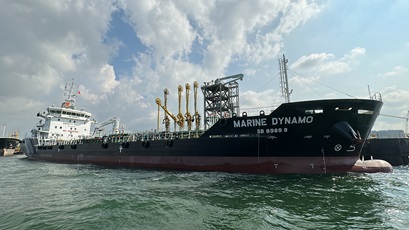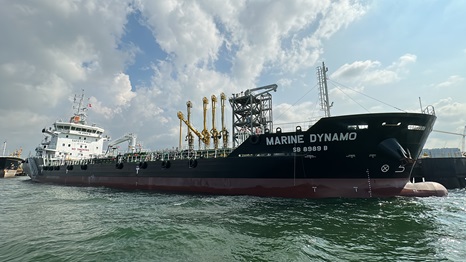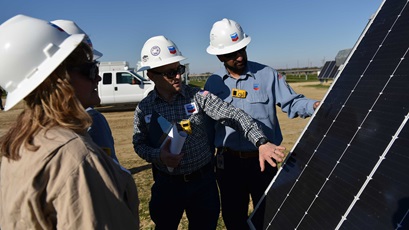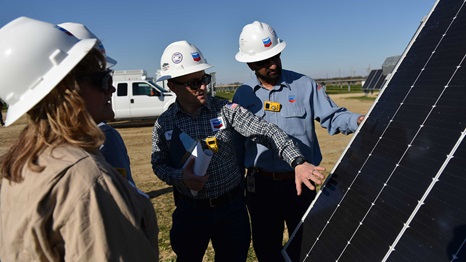our operations
incubator plays matchmaker with businesses, new energy tech
2 min read | september 09, 2022
Chevron has teamed up with the National Renewable Energy Laboratory (NREL) to form Chevron Studio, a technology incubator to bridge the gap between exciting new technologies and the market.
why it matters
It’s all about connection. Scientists and researchers at national labs and universities are often pioneering new technologies but have no way to bring them to the market and scale them up. Entrepreneurs have the business acumen and resources to commercially develop a new technology but don’t always have the tech at hand.
Chevron Studio connects the two sides, making it possible for cutting-edge technology and inventions that may enable lower carbon intensity to be deployed on a larger scale and have a greater impact.
“We know there’s a lot of intellectual property developed in the national labs and universities that, with the right nurturing, can be developed into businesses offering promising solutions to lower carbon intensity,” said Gautam Phanse, strategic relationship manager for Chevron Technology Ventures.
Gautam Phanse
Strategic relationship manager for Chevron Technology Ventures
This critical component, getting the invention to take shape and hit the market, can help bring affordable, reliable and ever-cleaner energy to more people and businesses.
how it works
Chevron Studio differs from typical technology incubators in that it provides a complete pathway for scaling up from the laboratory to a field trial. It acts as a matchmaker: Chevron Studio matches entrepreneurs with early-stage technologies and inventions from national labs and universities and then provides the seed funding for the entrepreneurs to scale up the technology to a semi-commercial scale.
Katie Woslager, NREL program manager for Chevron Studio, says that Chevron Studio offers financial support and technical assistance to develop and deploy these technologies.
“Chevron approached our lab, given our experience and expertise running technology incubator programs,” Woslager said. “We started a conversation and created a program that would be beneficial to support the formation of new energy companies focused on lower carbon solutions.”
There are three phases in the program:

discovery

scale up

field trial
what to watch
The focus areas for the first cohort of companies are carbon utilization, hydrogen and renewable energy, energy storage systems and solutions for a circular economy. The most compelling and competitive proposals will advance to the second phase. Those who demonstrate success in scaling up and a potential to grow business will advance from scale up phase to field trial phase.
The response has been positive for the first round from the universities and national labs as well as from entrepreneurs. The recently announced first cohort of entrepreneurs and technologies includes a mix of intellectual property from top universities and entrepreneurs with a range of start-up experience.
The application process will be opened up every six months, and the next cohort is expected to be chosen in the first quarter of 2023.
topics covered
related content
-

 1st hybrid fueling barge chartered in Singapore
1st hybrid fueling barge chartered in Singaporealternative fuelsmarch 28, 2024
-

 laying the foundation to realize carbon capture’s potential
laying the foundation to realize carbon capture’s potentialemissions solutionsmarch 27, 2024
-

 hydrogen facility to be a chevron first
hydrogen facility to be a chevron firstour operationsfebruary 29, 2024
-

 energy equation requires multiple and diverse energy sources
energy equation requires multiple and diverse energy sourcesalternative fuelsjanuary 16, 2024
chevron email updates
Subscribe to our newsletter to receive news and updates.



